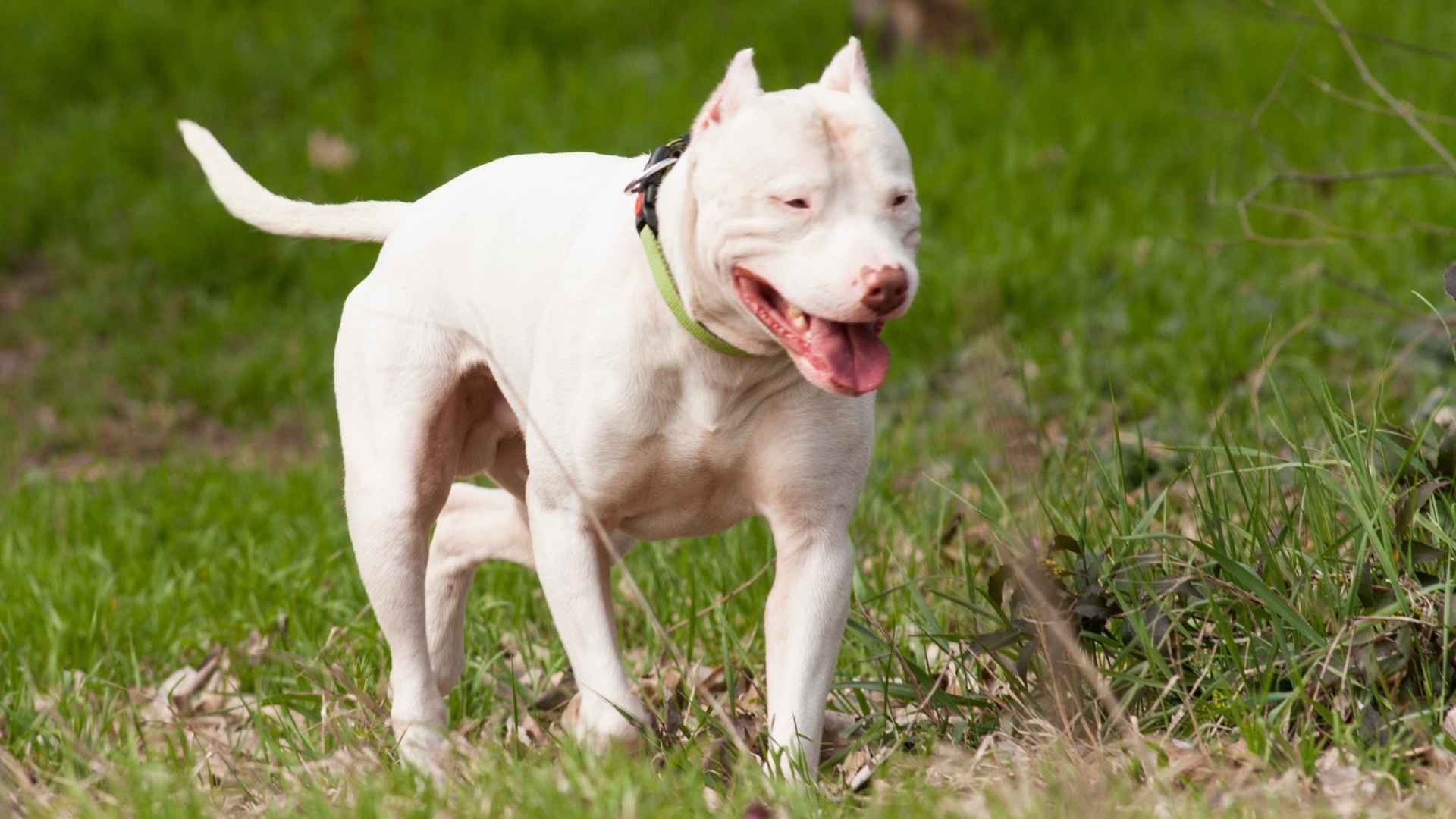Human and dog joints have so many similarities that learning to treat diseases like arthritis in dogs helps researchers discover treatments for humans. Joint health is crucial for a better quality of life in dogs, just as it is in humans.
While a dog’s joint health can depend on several factors, including genetics, diet, the dog’s environment, and exercise routine, certain breeds tend to have healthier joints than others.
Looking for a pup that’s built to move and stay active for years to come? Joint health is a big deal, especially if you want a dog that loves to run, play, hike, or just age gracefully without mobility issues. Some breeds are naturally better at avoiding joint problems like arthritis or hip dysplasia.
In this list, we’re highlighting the dog breeds with the best joint health, perfect for pet parents who want a happy, healthy, and active companion for the long haul.
7 Dog Breeds with Best Joint Health
1. Greyhound
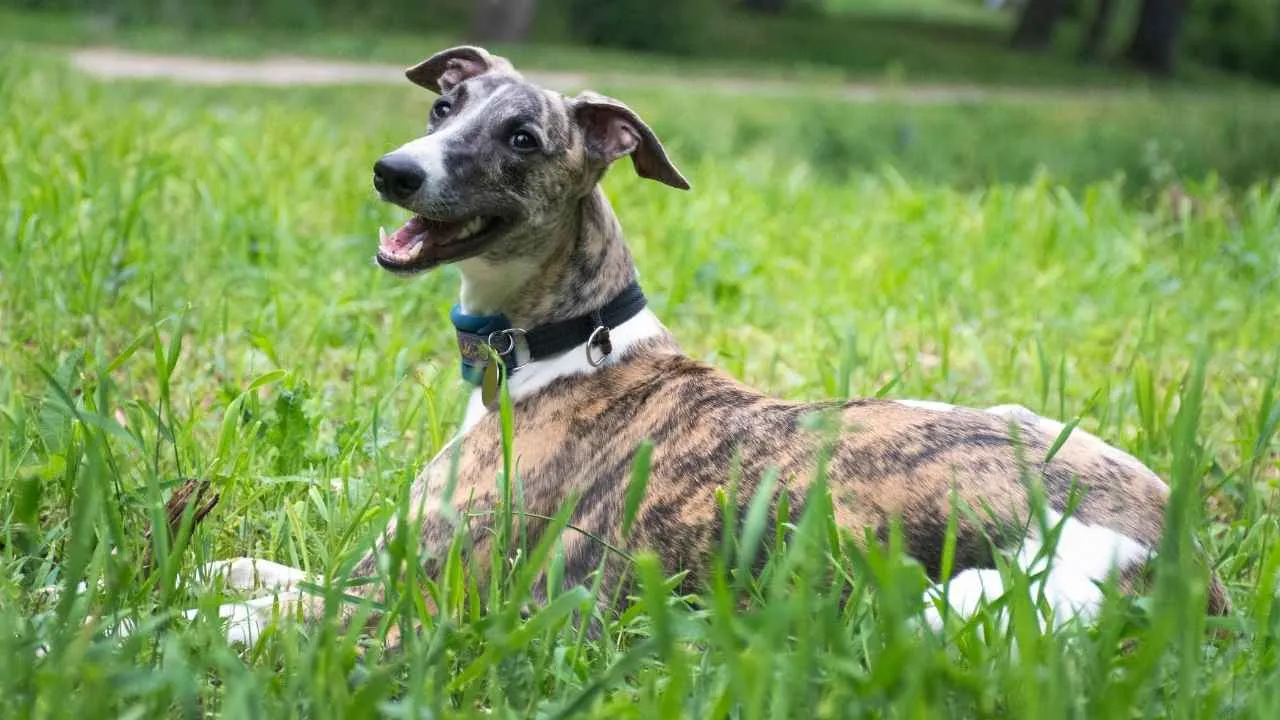
Greyhounds are gentle companion dogs with an independent nature. The American Kennel Club calls them “the champion sprinter of dogdom” for their agility and high energy. Greyhounds are healthier dogs and are less prone to joint issues than some other breeds.
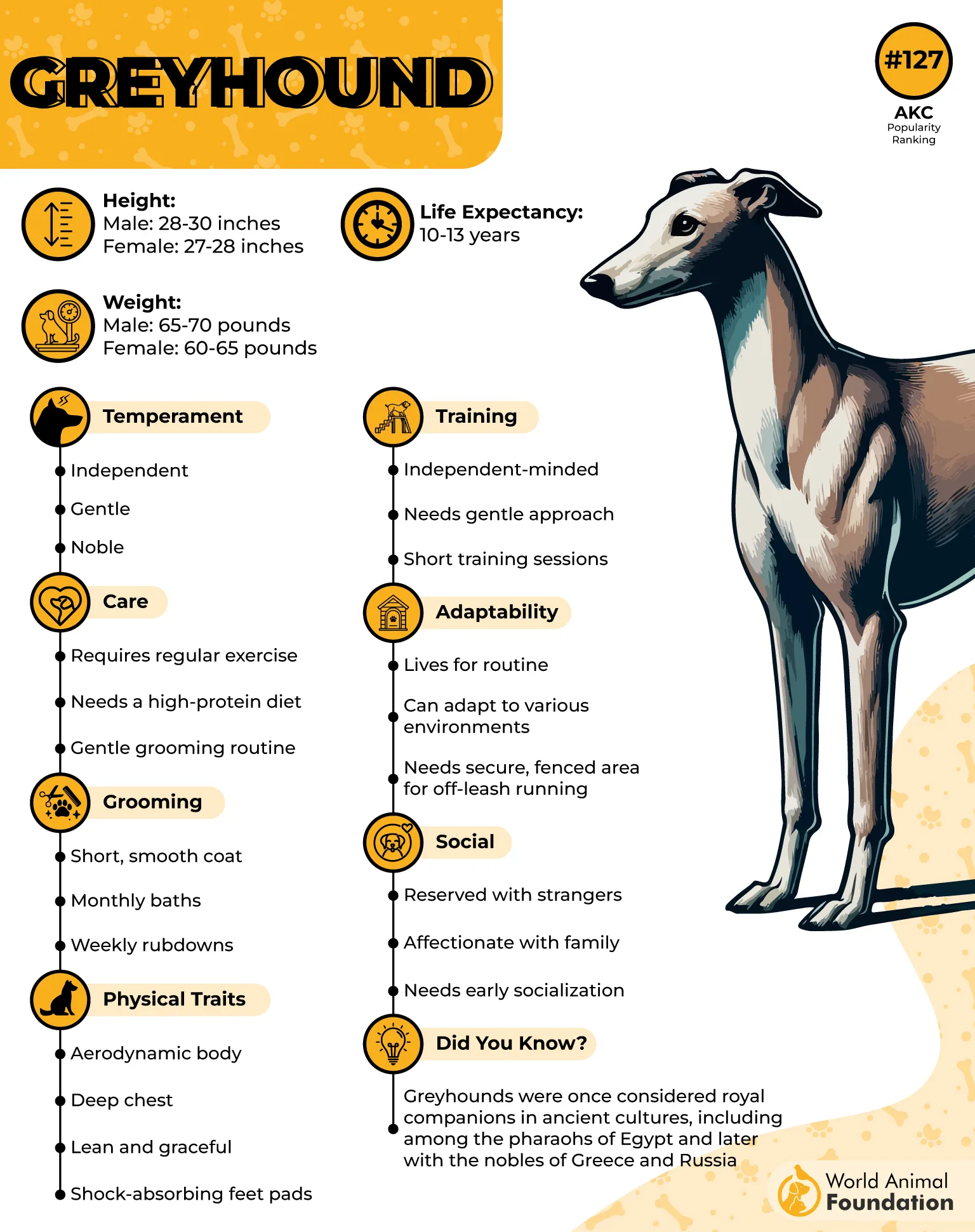
This beautiful dog captivates dog lovers all around the world with its stature, coat colors, and robustness. Their long bodies give them a unique and noticeable appearance.
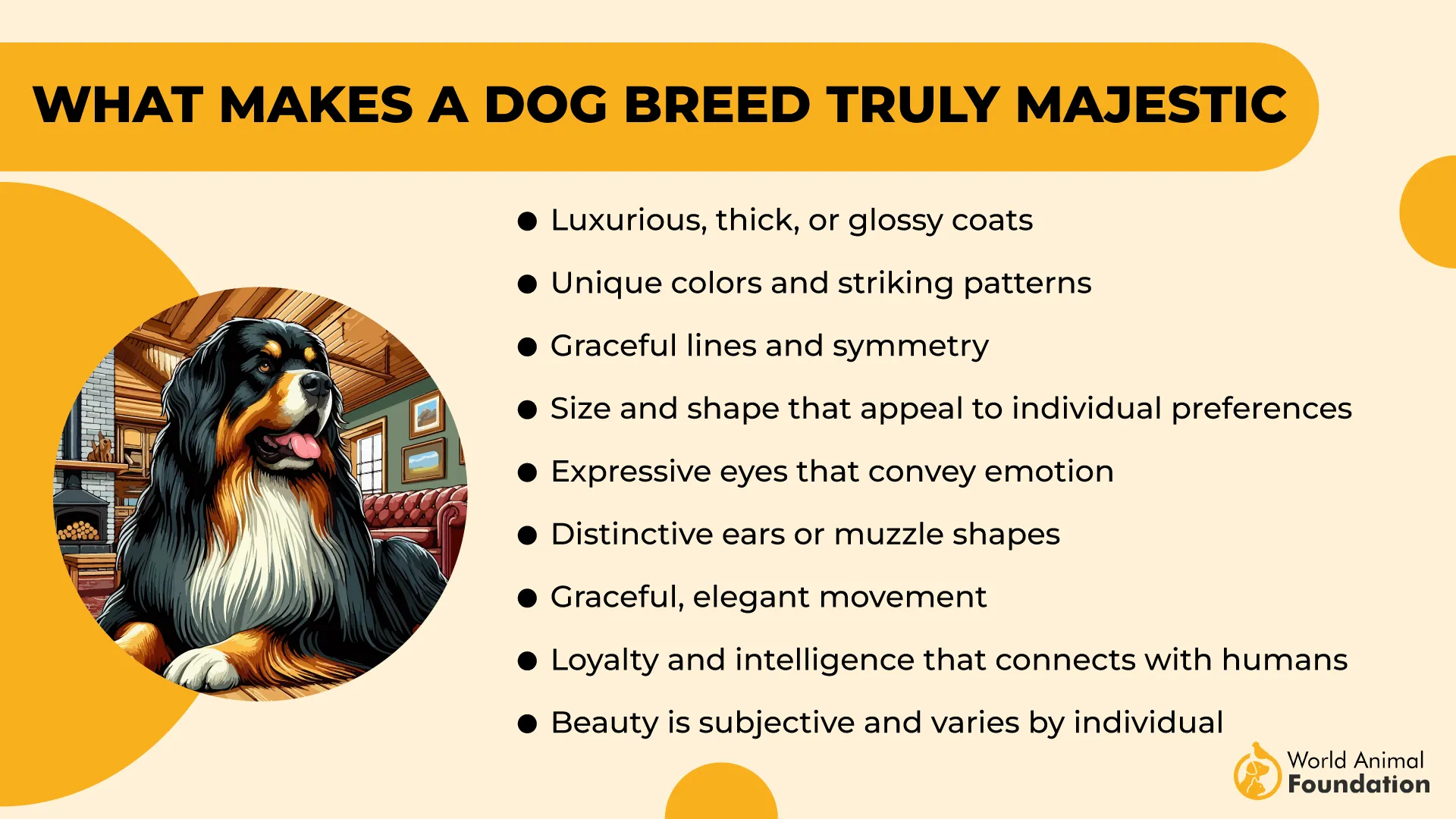
As a healthy breed, they’re easier to take care of and great partners in crimes for active owners. Like all dogs, though, they also need routine vet visits to watch out for possible health issues.
PetMD recommends adding supplements like glucosamine and chondroitin to their nutritional plan to help them with joint health. Omega-3 is also a great supplement for them as it helps not only with joint health, but also gives them a healthier coat and skin.
2. Border Collie
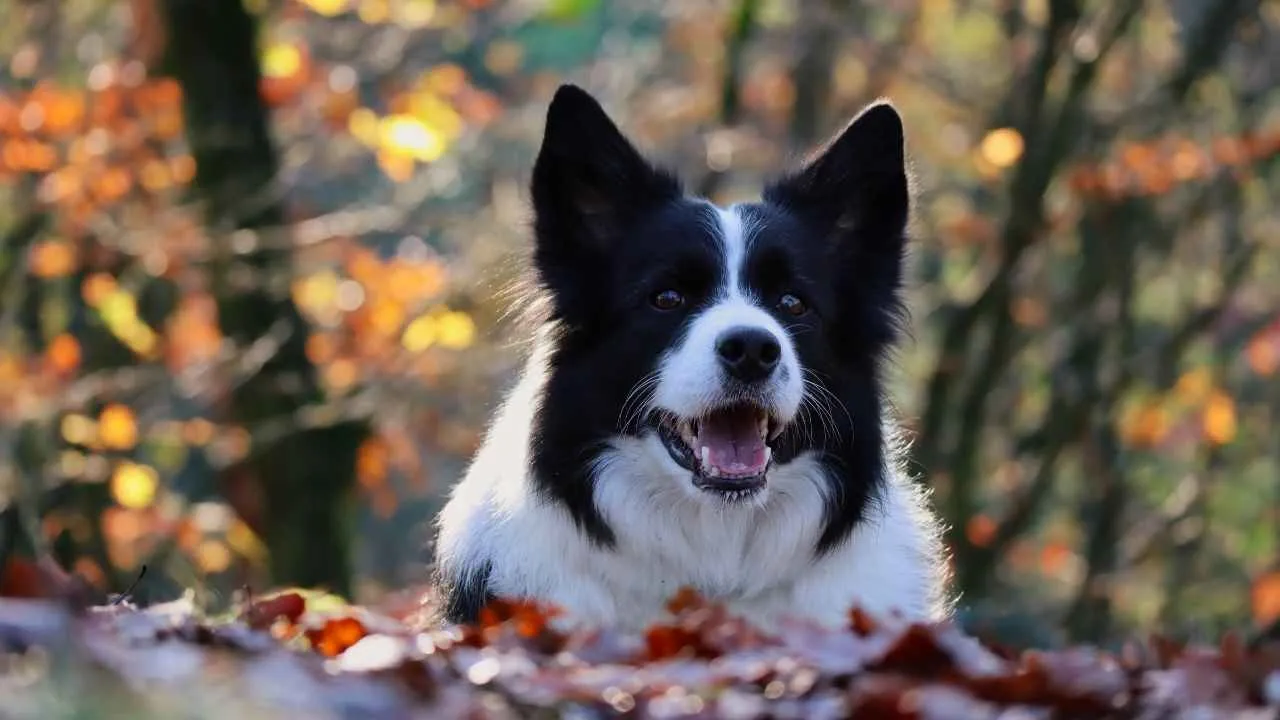
Border Collies are feisty family dogs with joyful and loving personalities that captivate all age groups. They’re a sturdy and generally healthy breed that loves to engage in physical activities and playtime. They have a genetic predisposition to suffering from certain illnesses, which dog owners should watch out for.
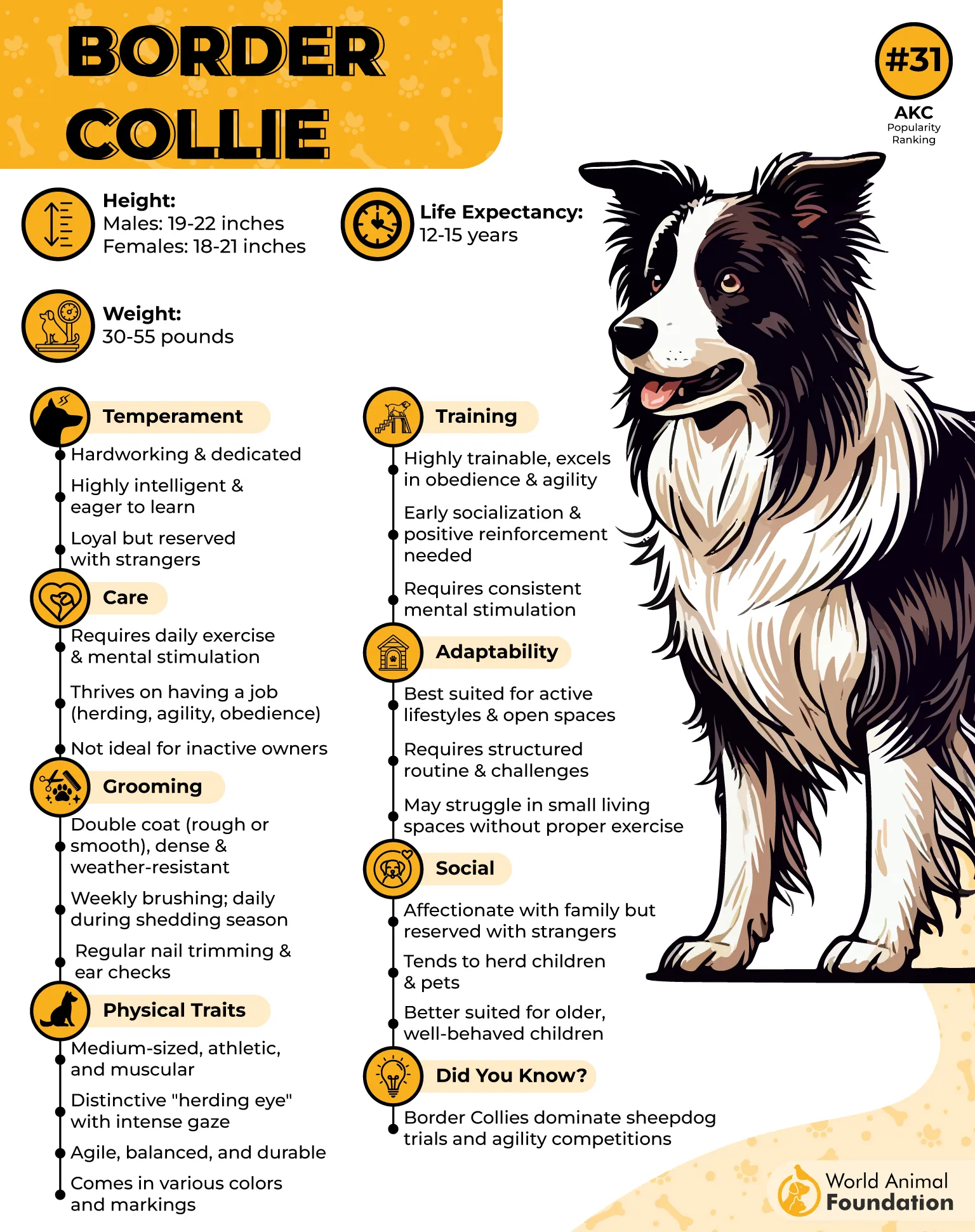
Hip dysplasia is an issue many dogs, including our lovable Collies, are prone to developing. Hip dysplasia is a condition that can damage and cause deformities in the ball and socket joint of the hip. If left untreated, this skeletal issue can cause joint pain and decreased mobility in your pup.
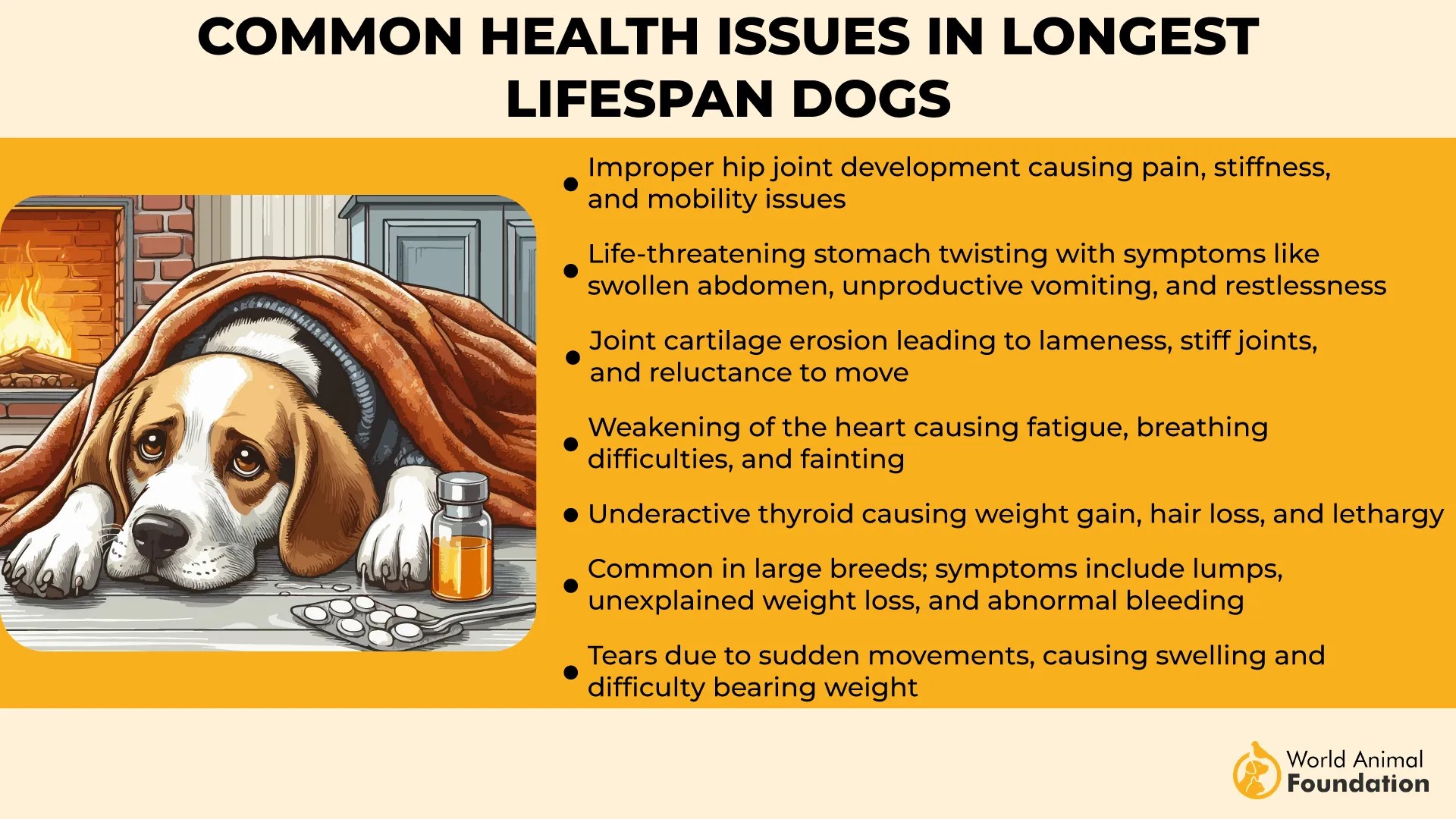
Your pet can be saved from such degenerative joint diseases with healthy nutritional munchies and exercise to fend off extra weight. It’s better to watch out for any signs of such health issues and get them screened on time.
With early diagnosis, your vet can recommend measures to fight off joint damage. Sometimes, invasive surgery is also an option and can be pretty effective.
3. Pointer
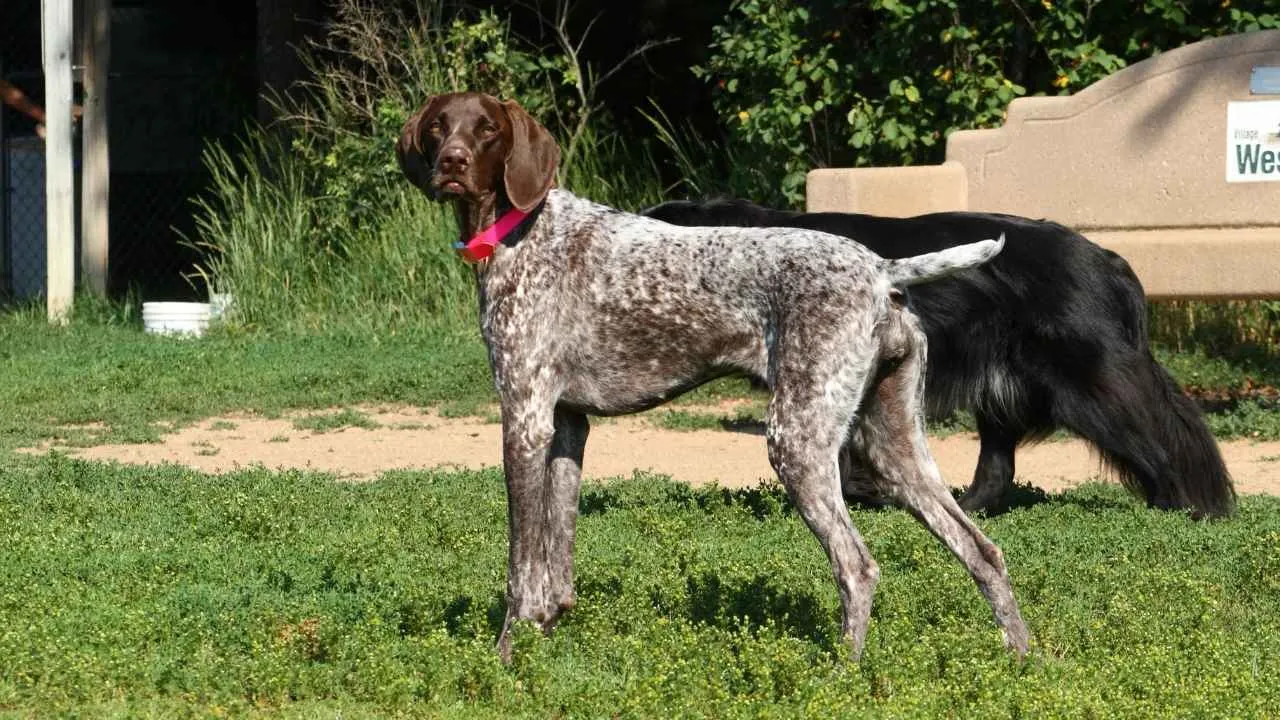
If you’re an outdoorsy and active person, a Pointer as a companion will make your activities ten times more rewarding. Points, also called “bird dogs” or “gun dogs,” are on top of the charts for their agility, endurance, and bustling energy.
Whether you want to go out for hiking or just for a little walk, your Pointer will happily wag its tail and come along. As they’re active dogs, developing joint problems is a possibility. Some health issues they might inherit from their parents or develop due to a genetic problem.
Hip and elbow dysplasia is one of the common inherited diseases your Pointer is at a high risk of. The cause of these issues is normally bones in the joints not aligning properly due to growth abnormalities. To catch hip or elbow dysplasia on time, an X-ray screening can help by capturing the joint alignment.
Another joint-related illness your beautiful Point is at risk of inheriting is Luxating Patella; this involves one or both kneecaps popping out of place. It’s not as painful as dysplasia, but if it’s left untreated, your Pointer might end up developing arthritis and joint inflammation.
4. Shiba Inu
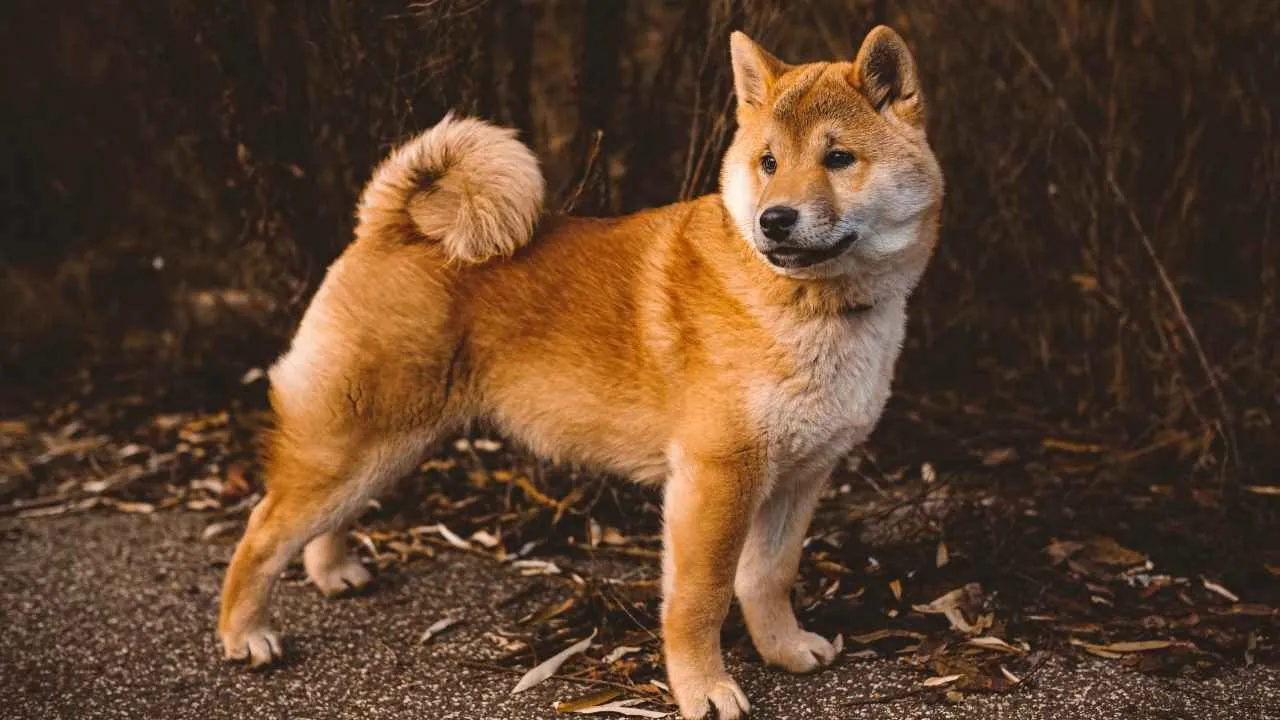
Shibas are foxlike, high-spirited, and intelligent dogs, originally bred in Japan and used as hunting companions. These canines leave an impression on beholders with their thick fur, curled, fluffy tail, and eyes that sparkle with wisdom.
While small dogs, Shiba Inu, are a healthy breed with normally good joint health.
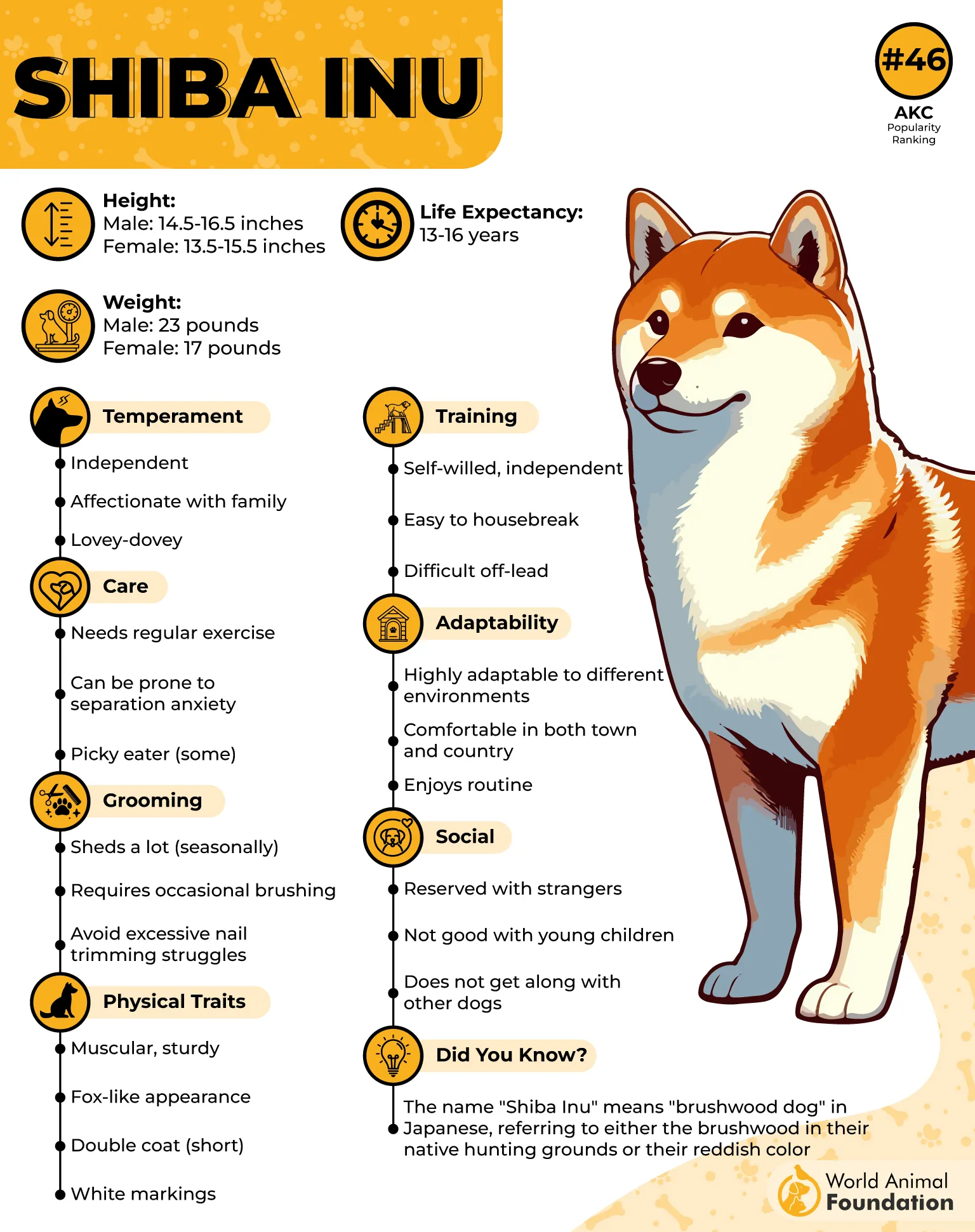
Shibas have a good lifespan (13-16 years) and normally can stay in their best state health-wise. Like all dogs, they need a vigilant owner who can catch signs of any health issues lurking. Patella Luxation is a joint-related illness Shibas have a predisposition to developing; make sure to get them screened early.
Your Shiba is most likely to stay healthy and enjoy its best life if it’s getting a proper diet and appropriate exercise to keep off excess weight. Talk to your vet about supplements that support joint health in your furry friend.
Small breed dogs can become chubby if you’re not careful with how active they are or what they’re eating. While sweet treats are a dog’s right, moderation is always a good strategy.
5. Dogo Argentino
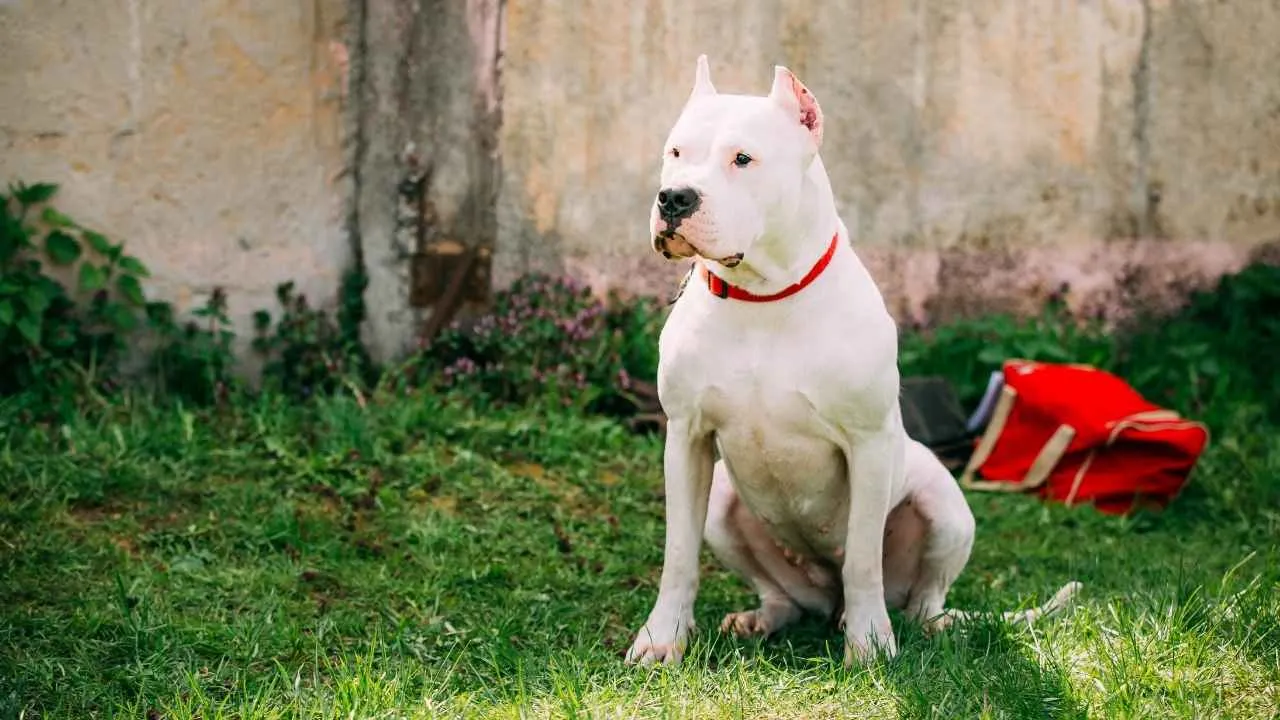
Chihuahuas are tiny dogs overflowing with affection and energy, and make amazing family pets. These little gremlins have a main character energy, and they thrive on attention. Despite being a smaller breed, these dogs have a personality you can’t help but notice.
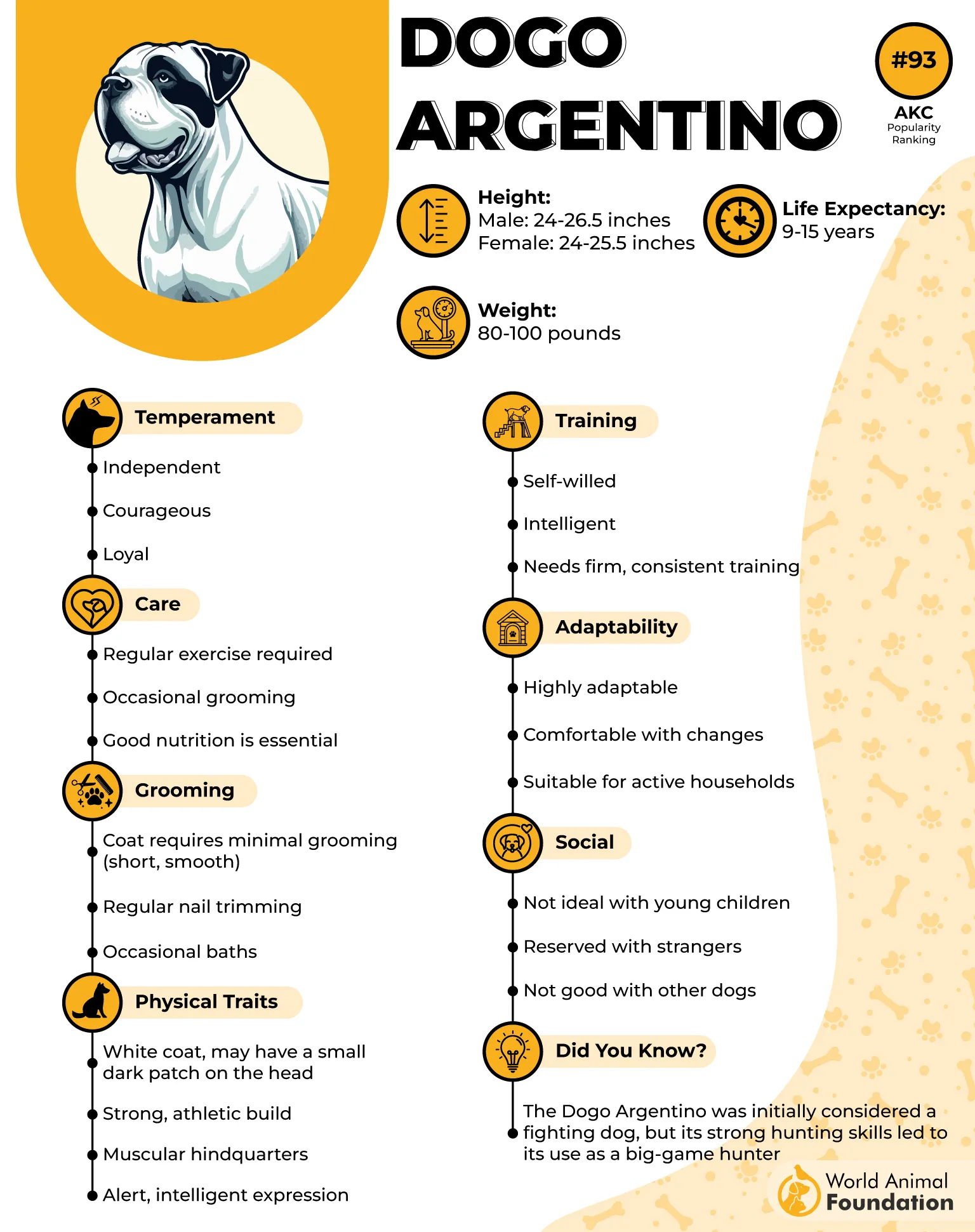
These dogs have tiny, sensitive stomachs, so their overall health can depend a lot on what they’re munching on. They’re generally healthy canines, but don’t skip regular vet check-ups to catch any possible health issues.
Chihuahuas are genetically predisposed to a condition called Legg-Calve-Perthes disease, which affects their hips. They are mostly diagnosed with this condition in younger dogs and can be treated with a surgical procedure.
Preventive measures can keep these pups happy and active. Keep them at a healthy weight and add low-impact exercises in their routine; excess strain is not good for their short legs.
6. Australian Shepherd
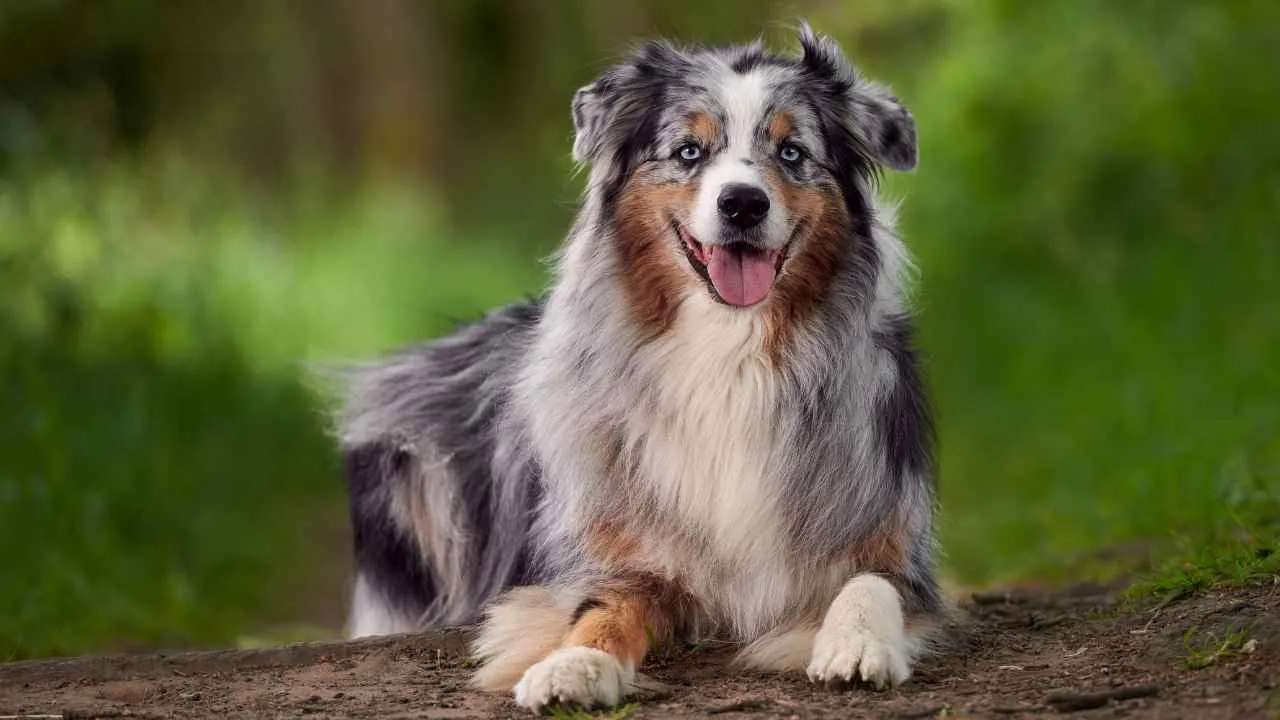
Australian Shepherds are one of the most popular medium to giant breed dogs, loved for their gorgeous coat and energetic nature. As a large breed, they can be a handful when it comes to grooming, but they make awesome companions for active owners.
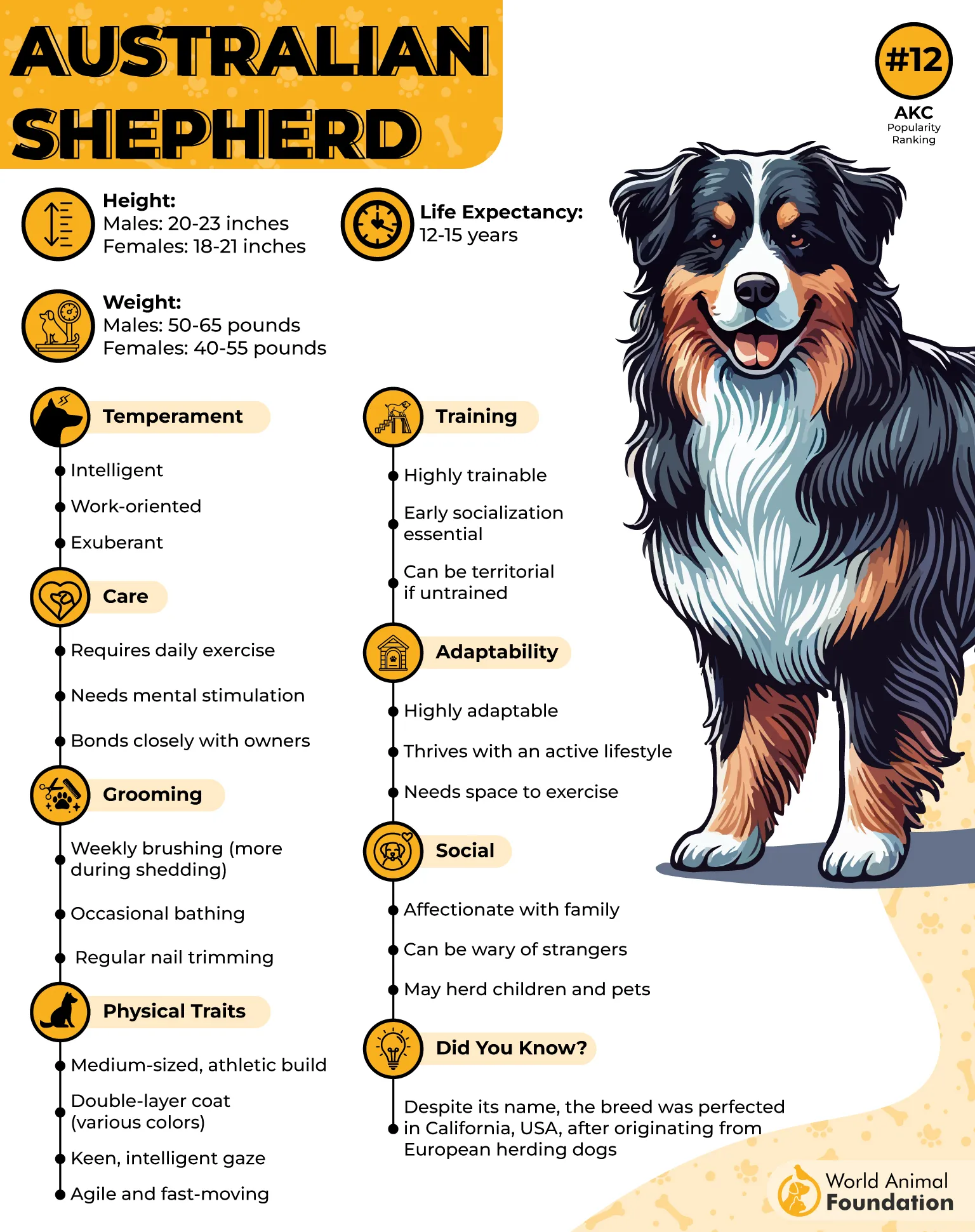
Aussies are highly trainable and very intelligent dogs who love to spend time with their owners. These energetic canines can’t help but seek more playtime and activity, and normally stay quite healthy.
These gentle giants are predisposed to hip dysplasia and elbow dysplasia, which can lead to joint pain and osteoarthritis. While these conditions are normally inherited, preventative measures can save your dog from joint damage.
Aussies, like all large breeds, need their physical activity. Overweight dogs are more likely to develop arthritis and other joint-related problems. So, proper exercise paired with a balanced diet will keep your dog at a healthy weight.
7. Basenji
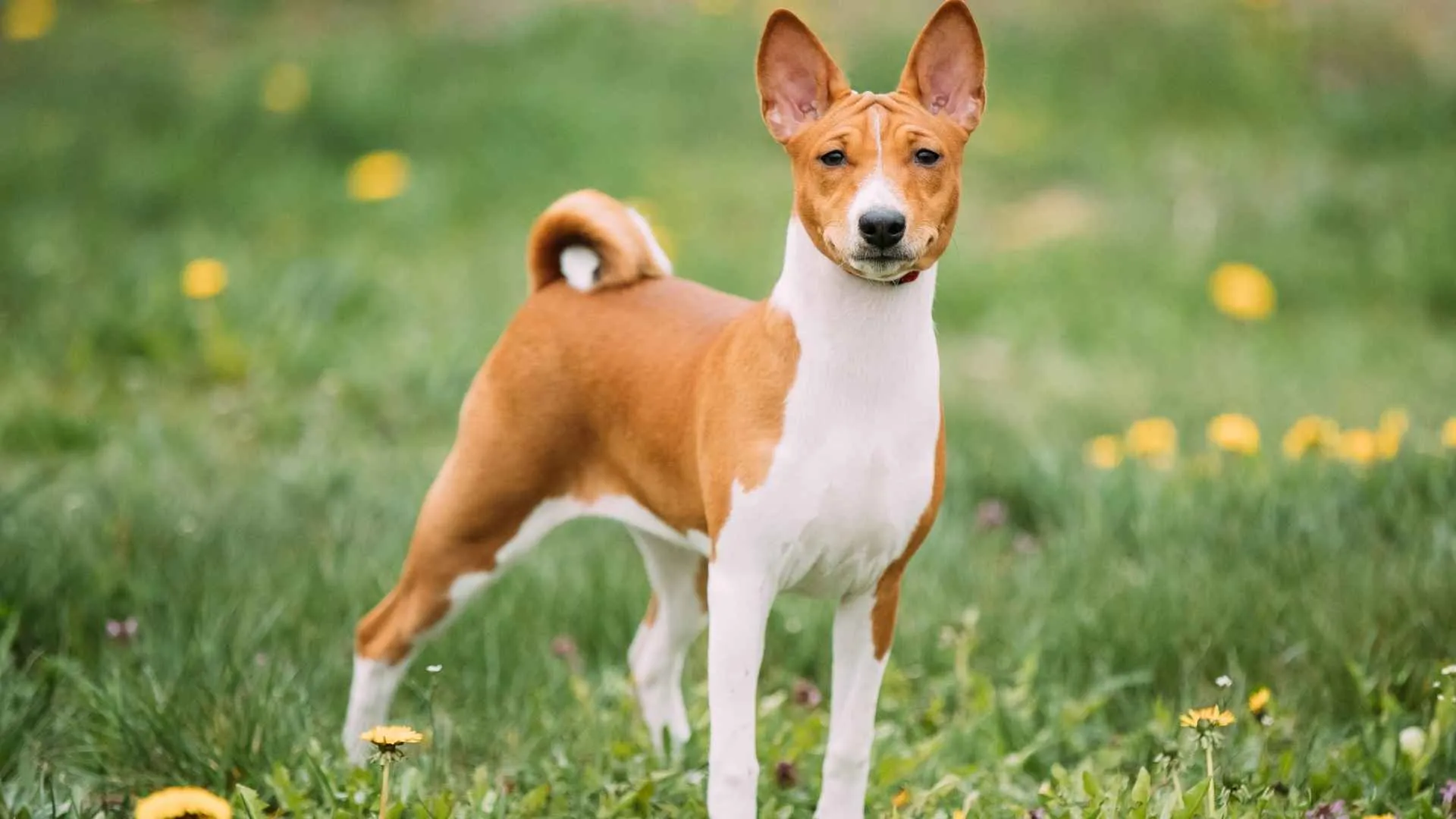
Basenjis, originally hunting dogs, are cherished due to their charming nature and intelligence. They look fascinating with their muscular and compact build, expressive eyes, and curled-up tail. These dogs are quite a healthy breed and make great companions for people with an active lifestyle.
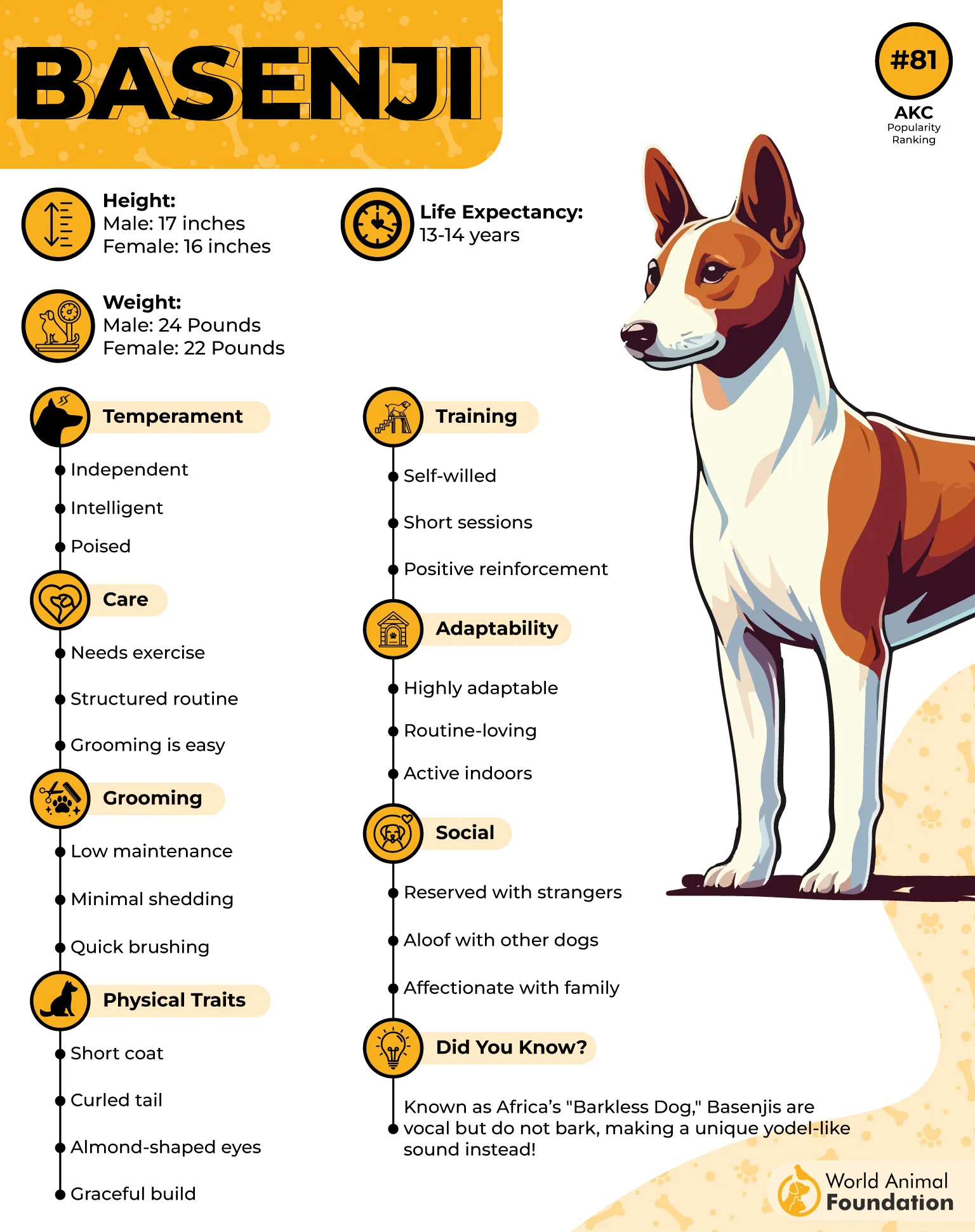
While very adaptable and resilient, this fascinating breed also needs some extra support in staying healthier. Basenjis need and prefer an active life, which is great for keeping them at a healthy weight. Pet parents should introduce a healthy diet and some activity in their routine while they’re puppies.
Basenjis are prone to hip dysplasia, which can become painful and affect your pup’s quality of life. Getting them screened every six to 12 months can help catch any joint problems at an early stage. Giving them some joint supplements after talking to your pet nutritionist will also help keep their joints strong.
Conclusion
A dog’s risk of developing certain medical conditions, including joint problems, depends hugely on their breeder’s capabilities. Older dogs also have an increased risk of developing some joint issues, and too much exercise can also lead to wear and tear in some active breeds.
Some other dogs with better joint health are Golden Retrievers, Labrador Retrievers, Great Danes, and Basset Hounds.


